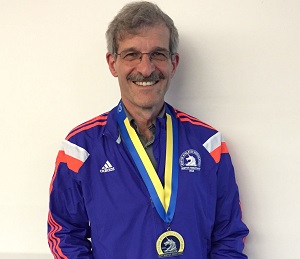RESEARCH
Dr. Kraus’ research group focuses on understanding the biological mechanisms whereby exercise training results in health benefits, and then translating that knowledge into clinical practice. The work spans basic science to cell culture to integrative physiology in human subjects. A second, but integrated line of work seeks to use multiplatform molecular data from human subjects to understand the molecular architecture of human atherosclerotic cardiovascular disease.
Our work on the mechanisms of exercise training has centered on our human studies that range from those in healthy individuals (adolescents in the Durham Elite Athletes Study) to those with established atherosclerotic disease (cardiovascular and peripheral vascular disease (AMNESTI), heart failure (HF-ACTION) and healthy aged (FIT for LIFE). In work spanning over 25 years we have been studying the effects of different modes, intensities and amounts of exercise on cardiometabolic risk factors (STRRIDE studies, funded by the NIH) (1,2,3,4,5,6,7). We are using this work to develop science around the role of energy cycling and energy balance on health during the lifespan, in particular on stem cell health. This work is being translated into a clinical program to promote healthy aging.
We have been investigating the utility of molecular markers to predict responses to exercise exposures of different types as outlined above. It is clear that approximately half of the variability in this response is heritable: that is, it is in one’s genes. Collaboratively, we have helped to develop a gene score that predicts improvements in cardiovascular fitness with exercise training (8). We are applying this to other cardiometabolic outcomes and incorporating genomics and metabolic data. Soon, in combination with the information gleaned from our previous work, we should be in a position to be able to recommend the right exercise, for the right person, at the right time—“personalized lifestyle medicine.” To this end are also interested in the effects of exercise when used in combination with drug therapy on health outcomes—a little studied area that is in demand for much more work. The entire enterprise, we call Lifestyle Medicopharmacogenetics. The STRRIDE clinical data and biorepository feeds this work.
We are proud to be part of an initiative that is housed in the Department of Biomedical Engineering to develop cellular models of multi-tissue physiologic integration “on a chip”. This builds upon over 30 years of collaborative work that seeks to tease out the specific biological signals (mechanical, electrical, paracrine, hormonal and metabolic) that signals muscle to modify phenotype (metabolic and fiber type) characteristics in response to chronic exercise (9,10,11). In our current work, we are using the multi-tissue chip technology to understand the mechanisms responsible for muscle adaptation to environmental cues (12).
Finally, a major effort within the Molecular Physiology Institute is to develop and understand molecular signatures (metabolite, genomic, genetic) which when combined with clinical information, provide strong predictive classifiers, or signatures, for cardiovascular disease (13,14,15). This work is built upon several robust clinical cohorts, bio-repositories and data repositories that have been assembled to develop this science, among them CATHGEN, GENECARD, CARRIAGE Family, and HF-ACTION. Understanding predictive molecular signatures will lead to new therapeutic strategies for prevention of cardiometabolic diseases.
SUMMARY
Dr. William E. Kraus, is a Professor of Medicine in the Division of Cardiology Medicine and the Duke Molecular Physiology Institute. He is a clinician scientist with research interests in the use of exercise for favorable mediation of cardiometabolic risk; in the role of skeletal muscle adaptations in mediating that risk; on using molecular markers to personalized lifestyle medicine approaches to disease prevention and in the study of how we can use a better understanding of gene-environment interactions to focus preventive measures in cardiovascular medicine. Dr. Kraus' clinical focus is in the areas of cardiovascular prevention with a focus on lifestyle modification, and cardiac rehabilitation. He is the author of over 450 peer reviewed publications and 300 abstracts.
MD, Duke University, Durham, NC
PUBLICATIONS
LINKS
Bill was a member of the 2018 Physical Activity Guidelines Advisory Committee which submitted its Scientific Report to the Secretary of HHS in February 2018. The report summarizes the scientific evidence on physical activity and health, and the government used it to develop the second edition of the Physical Activity Guidelines for Americans.
Baha'i Faith
Duke Cardiology
American Heart Association
American Physiological Society
American College of Sports Medicine
American College of Cardiology
Duke Sports
Western Reserve Academy
Harvard University
Astronomy Picture of the Day
North Carolina Symphony
Metropolitan Opera (NY)
US Track and Field
Boston Athletic Association and Boston Marathon

